I hate the above words - "haute couture". It sounds like something a Frenchman coughed up, like a hairball of horrible, undigestable French words. My mom and I used to make fun of it, exaggerating the sounds as much as possible until it really did sound like retching. I also hate the concept of the words, and the way they're used, especially around here in New York City, where "couture" is a very sought after little piece of fabric that happens to have Burberry knitted on to the hem, and clothing that is not "couture" is shunned and deemed uncool.
Here's a nugget of knowledge for the day: "haute couture" is actually a term owned/guarded by the Chambre Syndicale de la Haute Couture in Paris (say Paris like "pay-ree"). They publish a list of fashion houses each year, and those fashion houses on the list qualify as "haute couture". No one else does. Crucially, haute couture houses must make clothing that is custom-fitted. If they stop that and start making pret-a-porter, or ready-to-wear clothing, then they'll lose their haute couture status. There are ten today: Adeline Andre, Chanel, Christian Dior, Jean-Paul Gaultier, Givenchy, Christian Lacroix, Scherrer, Dominique Sirop, Frank Sorbier, and Emanuel Ungaro. Note that the brands you think would be haute couture aren't even among them. As the wikipedia article states with much pride, those that challenged the haute couture establishment aren't around anymore, and people have realized that cheap clothing doesn't cut it, and have returned to bowing at the haute couture altar. In America, this altar means all that is sold at places like Neiman Marcus, by the way - not those ten fashion houses. So you know what haute couture really means? Elitism. And that's the nugget of knowledge for the day.
Anyway, I just decided to call this post about the random "extracurricular" things I've been doing these past three weeks "haute couture". Even though it has nothing to do with dressmaking.
The first thing I did this year was see the play "Mother Courage and Her Children" at the Shakespeare in the Park festival on the first weekend we were at Barnard. A bunch of us went - me and Amelia and Mir did not wait in the humungous Central Park line for tickets (Shakespeare in the Park is free and open to the public, as long as you're willing to stand in line from 5 am to noon), we got the boxes of storage items for the whole suite instead. I think that was more gratifying than waiting in line trying to sleep in uncomfortable positions anyway - we actually accomplished something physically, something that burly moving men were supposed to do, three relatively little girls. Appropriate too, given that the play "Mother Courage" features a very capable, strong, assertive woman in the spotlight of the plot - the titular Mother Courage, a woman living in the Thirty Years' War in Europe, profiting off the war by peddling an assortment of goods in her covered wagon, a monstrous piece of wood that she has her children lug around like oxen, following the troops as they march ceaselessly in and out of battle, dying regularly, and killing peasants. While Mother Courage wants the war to continue so she can keep buying and selling at a profit, and thus survive, she does not want her children fighting under the banner, because she's convinced they'll all be killed. And they are all killed, somehow or other, by the war.
Running alongside the one-by-one loss of the children is Mother Courage's economic ups and downs and her intense frugality that forces her to make some horrible decisions. At one point one of her sons has been captured by the enemy and is about to be executed if he doesn't tell them where he hid his side's cash box. Being a stupid, honest soldier he doesn't tell them. Mother Courage uses her prostitute friend as a go-between to try to negotiate a deal, and the army is willing to be bribed - for the price of Mother Courage's entire wagon. She cannot simply throw the entire wagon away, even if her son's life hangs in the balance. Losing the wagon means certain death for herself and her daughter. So what does she do? She offers them less than the asking price. They say no, and she finally decides to throw in everything, but by then it's too late, and he's dead.
So yeah, lots of stuff like that - horrible, horrible decisions. I can't put it into words exactly what this clash is about. I suppose it's about the political economy of a war, but it's also about choosing who gets to survive, and about the way capitalism does not lift us out of our misery but instead drags us down from our dreams. As Mother Courage recounts in "The Song of the Great Capitulation", she was once an optimistic young girl who wanted to climb to the highest peaks and look down on everyone else - but she has been knocked down, forced off, and there's no use in the uphill battle anymore. But I haven't mentioned the best thing about this production: Meryl Streep, who plays Mother Courage. I hope everybody understands how amazing of an actress she is - well, she's like that live too. She was absolutely perfect for the role and played it cunning and sharp at first, then psycho as time went on and her children started dying off in the war she needed to continue for her livelihood. As we know she excels in playing a woman who must make truly nauseating decisions - i.e., "Sophie's Choice" - and that translates here. Meryl Streep is so emotional and blazing and intense - the New York Times review described her as a "supernova", and I think that's an apt assessment. The sadness of her condition by the end of the play definitely made me cry, and the people around me too. We saw the play on its last night, and I was so thankful to be able to witness such an amazing actress, acting in the flesh and blood. It's more than acting, sometimes. It's more like a manifestation.
Other than the play, I haven't really seen a whole lot of random acts of culture in New York. We did go to the Latin film festival to see Y Tu Mama Tambien, which I had never seen but is some kind of an indie cult classic. Let's just say that I was not so impressed. It's one of those movies that tries to change your life, man, and make you see the world in a whole new way, and make you just want to pick up and go somewhere, man, just live. Get the impression? There's no real plot and no real moral of the story. Two immature, horny teenaged boys whose girlfriends have just left for Europe decide to take an older woman to a mythical beach that they just made up. Chaos ensues. But it's not really chaos. It's just gratuitous sexual conversations and random tidbits of information about the scenery that tries to make some kind of political statement, but fails miserably in making any kind of impact. Okay, if you liked Motorcycle Diaries, you'll probably like this. If you hated it, then you'll really hate this.
Other than that, two really great movies that I would recommend to anyone that I recently saw were Little Miss Sunshine and My Sassy Girl. The former is a recent indie release about a dysfunctional, working-class, fucked up American family in Albuquerque who, upon hearing that the little girl has been entered in the beauty pageant Little Miss Sunshine, packs up in their ugly, rotting yellow van and drive to Los Angeles. The latter is a few-years-old Korean movie about a guy who saves a drunk girl from walking into a subway and then just can't seem to get rid of her - that and she also can't keep herself from brusquely going up to complete strangers and lambasting them for picking up underaged prostitutes, and she looks for any possible excuse to hit the poor guy who can't resist following her demands to meet whenever she calls. But both are hilarious and heartwarming in very, very offbeat ways. And by offbeat I mean Little Miss Sunshine features a grandpa who does heroin and a brother-in-law who just survived a suicide attempt because his gay lover left him for the other Proust scholar at the university, and My Sassy Girl features a heroine who is really a no-holds-barred all-out bitch (but in a good way!). There are also UFOs in My Sassy Girl. And that's all I'll say.
Other than that, me and saffron have started regularly going to this awesome store called Kinokuniya. It sells Japanese books and stationery, or at least that's what it says on the front window. But really it's a mecca of all things Japanese, featuring not only boring "books" and "stationery" but rows and rows of manga, anime, and soundtracks to match. Practically everything you could've possibly heard of, Kinokuniya has. We went to get posters, and woefully, they don't have a very good poster selection. But you can get the manga and anime, as well as totally random things like calendars, action figures, Totoro t-shirts, stuffed animals, books that have to do with fandoms, and like every issue of fandom magazines like Shonen Jump and Shojo Beat. They also have non-animated movies, books in Japanese and English on everything from origami to cooking, a children's section in the back, and a very wealthy stationery section upstairs that sells gorgeous paper. Most impressive to me, however, was the fact that manga goes as low as $7.50 at Kinokuniya. As in an entire graphic novel, as in one of the 42 tankobon that I only have three of but spent $10.00 for the other two each in the Lincoln Nebraska Barnes & Noble. Fuck yes. So far that's the only thing I have found that is actually cheaper in New York than in Lincoln.
Kinokuniya, at Rockefeller Center, is also so very Japanese-cutesy in its demeanor. All the staff are Japanese, and there's this little contraption in the front of the store that you put your umbrella into, and when you pull your umbrella out it's wrapped in plastic. You're actually not allowed to enter the store unless your umbrella's wrapped up. It's so kawaii. I end this post with the warning that: things that are cool are sometimes worth shit, and things that look very grubby are sometimes gems, and things that are truly awesome do not need to be called cool in order to be respected. El fin.
skip to main |
skip to sidebar
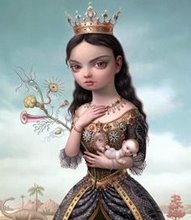

That's Mr. Kaneda to you, punk!
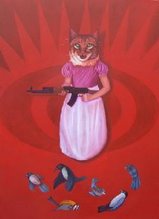

Everyone, just... pretend to be normal.

You will suffer me.
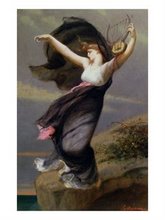
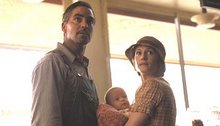
Lots of respectable people have been hit by trains!
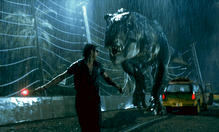
No, I am merely stating that uh... life finds a way.


Gee, I wish we had one of them doomsday machines.
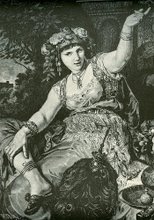
when the wind is southerly, i know a hawk from a handsaw
About Me
The Creatrix

Blog Archive
What's Happenin'
Straight to Hell
Brain Stew
The Speed of Sound
Whatever Gets You Through Today
I Still Haven't Found What I'm Looking For
Akira

That's Mr. Kaneda to you, punk!
Kitty With A Tommy Gun

What's That Smell in the Kitchen? - Marge Piercy
All over America women are burning dinners. It's lambchops in Peoria; it's haddock in Providence; it's steak in Chicago tofu delight in Big Sur; red rice and beans in Dallas. All over America women are burning food they're supposed to bring with calico smile on platters glittering like wax. Anger sputters in her brainpan, confined but spewing out missiles of hot fat. Carbonized despair presses like a clinker from a barbecue against the back of her eyes. If she wants to grill anything, it's her husband spitted over a slow fire. If she wants to serve him anything it's a dead rat with a bomb in its belly ticking like the heart of an insomniac. Her life is cooked and digested, nothing but leftovers in Tupperware. Look, she says, once I was roast duck on your platter with parsley but now I am Spam. Burning dinner is not incompetence but war.
Little Miss Sunshine

Everyone, just... pretend to be normal.
Lord of the Rings

You will suffer me.
Poetry

Stopping By Woods on a Snowy Evening - Robert Frost
Whose woods these are I think I know.
His house is in the village, though;
He will not see me stopping here
To watch his woods fill up with snow.
My little horse must think it queer
To stop without a farmhouse near
Between the woods and frozen lake
The darkest evening of the year.
He gives his harness bells a shake
To ask if there is some mistake.
The only other sound's the sweep
Of easy wind and downy flake.
The woods are lovely, dark, and deep,
But I have promises to keep,
And miles to go before I sleep,
And miles to go before I sleep.
O Brother Where Art Thou

Lots of respectable people have been hit by trains!
Jurassic Park

No, I am merely stating that uh... life finds a way.
Emily The Strange

Dr. Strangelove

Gee, I wish we had one of them doomsday machines.
Scheherazade

Don't Panic, Little Stargazer belongs to sri angry angel.
: love love is a verb love is a doing verb : so fragile yet so devious : disdainful and curious : give me life give me pain give me my self again : i'm a firestarter twisted firestarter i'm the bitch you hated filth infatuated yeah : love of colors sounds and words is it a blessing or a curse : are you a part of the cure or are you part of the disease : i fought the war i fought the war i fought the war but the war won : wake up and face me don't play dead cuz maybe someday i will walk away and say you fucking disappoint me : you don't have to love me you don't even have to like me but you will respect me : don't let the walls cave in on you : sleeping in is giving in no matter what the time is : over there stands my angry angel and he's frowning like hell but i'm not feeling guilty :







